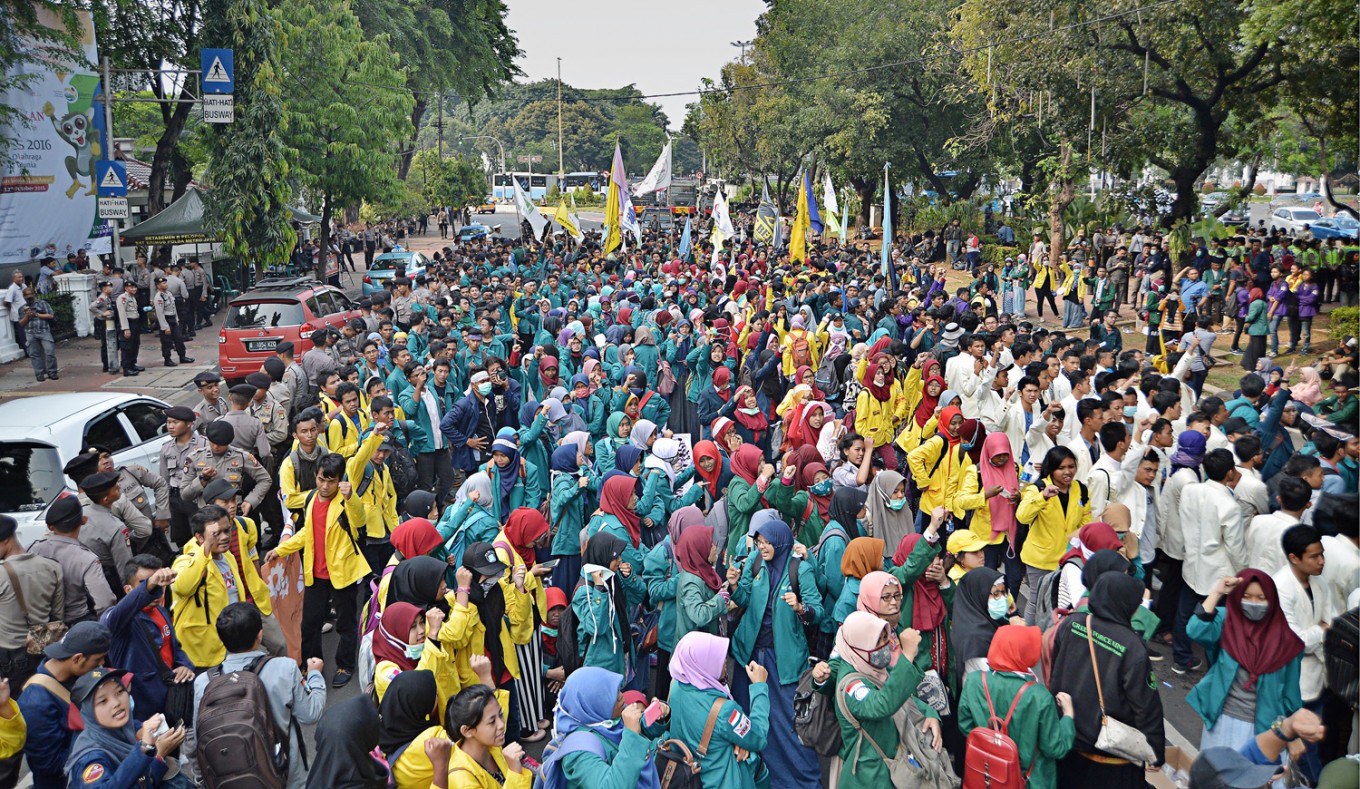Government regulations hamper antigraft commitment: ICW
Change Size
 People’s voice – Representatives of Student Executive Bodies (BEM) from 44 universities across Indonesia stage a rally under the tight escort of security personnel in front of the Merdeka Palace in Jakarta on Oct. 20. They urged President Joko “Jokowi” Widodo and Vice President Jusuf Kalla to immediately realize their pro-people programs. (Antara/Yudhi Mahatma)
People’s voice – Representatives of Student Executive Bodies (BEM) from 44 universities across Indonesia stage a rally under the tight escort of security personnel in front of the Merdeka Palace in Jakarta on Oct. 20. They urged President Joko “Jokowi” Widodo and Vice President Jusuf Kalla to immediately realize their pro-people programs. (Antara/Yudhi Mahatma)
S
ome regulations issued under the administration of President Joko “Jokowi” Widodo and Vice President Jusuf Kalla have the potential to hamper the nation’s commitment to eradicating corruption, a watchdog has said.
The two regulations, namely Presidential Decree (Perpres) No.3/2016 and Presidential Instruction (Inpres) No.1/2016, which both aim to accelerate strategic national projects, are loaded with business and economic interests and threaten antigraft efforts, Indonesia Corruption Watch (ICW) said.
ICW legal researcher Lalola Easter said Perpres No. 3 had the potential to downgrade graft cases and turn them into administrative violations while according to the 2001 Anticorruption Law, the restitution of state losses would not erase the criminal status of someone who had violated the law.
She referred to Article 31 (9) of the Perpres No.3, which states that if a person is found guilty of committing maladministration that causes a state financial loss as proven by a Government Internal Oversight Body (APIP) investigation, he or she must complete administrative procedures and return the state loss in a maximum of 10 days after the APIP investigation.
“The Jokowi-Kalla administration has the tendency to focus more on the economy and investment. We should scrutinize this as it is possible that these regulations were issued only as a support system for economic policies being pushed by the government," Lalola said on Thursday.
ICW investigation division staff Wana Alamsyah further explained Article 6 (1) Inpres No.1 that stipulates that law enforcers should first take administrative processes, in accordance with Law No. 30/2014 on public administration, before they investigate allegations of power abuses in the implementation of national strategic projects.
While in point 5 of the article, it is stipulated that the results of a preliminary examination into a person who is suspected of committing an abuse of power should not be made public before it enters the investigation phase, he went on.
Wana said both points could be considered “an anti-criminalization regulation package” as they provided impunity for perpetrators and contradicted accountability and transparency principles. (ebf)









